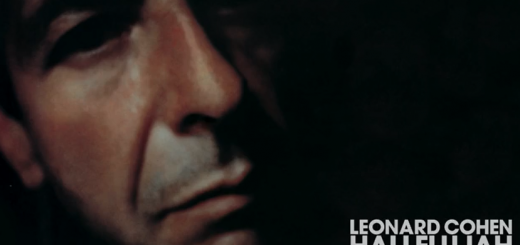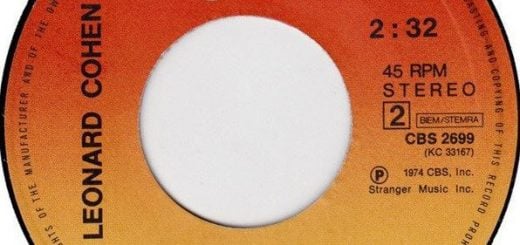Famous Blue Raincoat by Leonard Cohen Lyrics Meaning – Unraveling the Enigmatic Tapestry of Song
Lyrics
I’m writing you now just to see if you’re better
New York is cold, but I like where I’m living
There’s music on Clinton Street all through the evening
I hear that you’re building your little house deep in the desert
You’re living for nothing now, I hope you’re keeping some kind of record
Yes, and Jane came by with a lock of your hair
She said that you gave it to her
That night that you planned to go clear
Did you ever go clear?
Ah, the last time we saw you you looked so much older
Your famous blue raincoat was torn at the shoulder
You’d been to the station to meet every train, and
You came home without Lili Marlene
And you treated my woman to a flake of your life
And when she came back she was nobody’s wife
Well I see you there with the rose in your teeth
One more thin gypsy thief
Well, I see Jane’s awake
She sends her regards
And what can I tell you my brother, my killer
What can I possibly say?
I guess that I miss you, I guess I forgive you
I’m glad you stood in my way
If you ever come by here, for Jane or for me
Well, your enemy is sleeping, and his woman is free
Yes, and thanks, for the trouble you took from her eyes
I thought it was there for good so I never tried
And Jane came by with a lock of your hair
She said that you gave it to her
That night that you planned to go clear
Sincerely, L Cohen
In the deep night of a New York December, Leonard Cohen pens an epistle that would transcend the ordinary bounds of songwriting, emerging as an artifact of profound introspection and confession. ‘Famous Blue Raincoat,’ a track enveloped in a shroud of melancholy, operates on a plane of emotional complexity that beckons its listeners to gentle scrutiny and whispered wonder.
Through the song’s tender and weary verses, Cohen constructs a narrative that resides in the interstitial spaces between love, betrayal, and forgiveness. It is within these musical bars that audiences across the epochs have found themselves sifting through the lines for a truth relatable and eternally elusive. This exploration unwraps the layers of one of Cohen’s most iconic works, attempting to discern what truths lie beneath the fabric of the famous blue raincoat.
A Tale of Three Souls: Piecing Together the Love Triangle
The song’s narrative skeleton is built on a love triangle between the singer, his woman named Jane, and the elusive protagonist of the letter—the man in the famous blue raincoat. As Cohen’s lyrics meander with subtle evocativeness, he paints a picture speckled with despair and resignation. It is a tale of emotional entanglement where love becomes a multifaceted gem—an object of beauty, yet the source of unspoken pain.
Doused in metaphor and ambiguity, the song suggests betrayal as the central core of smoldering tension. Who exactly these characters are, remains unknown, lending an everyman quality to the drama — it’s a tableau emphasizing that the most intimate of betrayals and human complexities are shared human experiences.
The Drape of Melancholy: Music as the Vessel for Sorrow
It is not just Cohen’s words but the delivery of the music itself that drips with aching beauty. The elegant arrangement underscores the narrative, the guitar’s notes falling like droplets against the windowpane of the listener’s consciousness. Each chord carries the weight of the lament, and Cohen’s vocal delivery—a stoic yet tender timbre—becomes a hand extended in forlorn fellowship to those who have shared in similar melancthonies.
Rather than housing rage or snide bitterness, the music suggests a resignation to loss and the burden of insight gained. It becomes clear that this is an articulation of pain that seeks not to wound but to understand, to make peace with the complexities of the human heart.
Decoding Symbolism: The Arcane Path to ‘Going Clear’
The song wrestles with the notion of ‘going clear,’ a phrase fraught with connotations, perhaps alluding to Scientology’s concept of a psychological state free of burden. Yet, Cohen’s invocation seems to tap into a universal longing to shed one’s troubles and ambiguities, an escape from the heft of the past into a clarified present.
Intersecting the spiritual and the profane, Cohen juxtaposes the mundane with the transcendental. The famous blue raincoat, tattered yet recognized, becomes more than mere attire; it’s a symbol of the man’s history, his travels, and the wear that comes from life’s journey. Moreover, the lock of hair carries layered meanings, a token of affection or perhaps a relic of a bond that transcends temporal rifts.
The Lingering Ghost of ‘Lili Marlene’
As enigmatic as the rest of the composition, the mention of Lili Marlene hearkens to a German love song that became popular during World War II, crossing enemy lines in its poignant appeal. In Cohen’s world, however, she is an absence, another lost piece in the complex puzzle of relationships — a missing figure, underlining the notion of unattainability and incomplete narratives.
The allusion creates a bridge to the collective unconscious, a shared cultural memory of longing amidst adversity, binding personal ache to historical echoes. Lili Marlene in the context of the song, serves as a vehicle for nostalgia and the unresolved.
The Monumental Finish: Forgiveness Amidst the Ruins
The apex of Cohen’s letter hinges on two potent lines: ‘I guess that I miss you, I guess I forgive you.’ Here lies the nucleus of the song’s gravitating pull—the expression of forgiveness, delivered with a hesitance that renders it all the more authentic. It is here that Cohen lays down his weapon, extending grace to the point where vengeance could have lain, a choice that elevates the piece to the high art of mercy.
In the wake of devastation, the singer chooses to embrace his enemy, to reclaim his peace by unclenching the fist of retribution. It is a moment of humbling beauty, a decision that resounds with ancient whispers of forgiveness being a gift one gives oneself. It echoes into the silence, as the song folds into its finality, leaving us to ponder the limits of our own capacity to let go of ghosts draped in famed blue raincoats.








